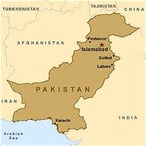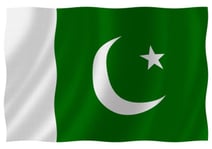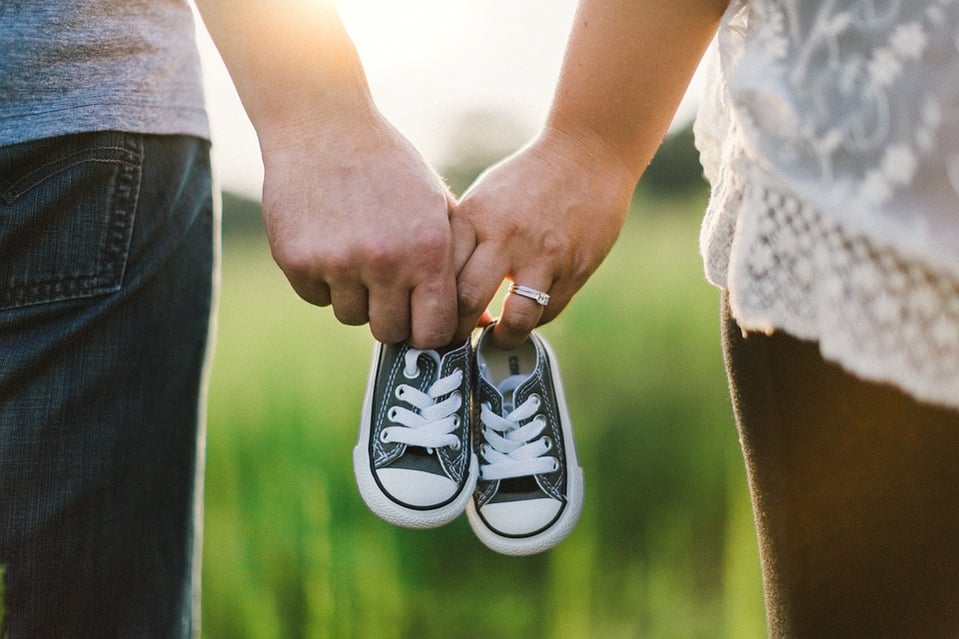

Adopting an orphan from Pakistan can be a wonderful opportunity for United States Citizens of Pakistani heritage. This international process allows an opportunity for a person of Pakistani heritage to adopt a child who shares their religious and cultural heritage. The overall costs of an adoption from Pakistan are less than the average domestic US adoption and most other international adoptions. The US tax credit of $13,300+ for adoption will also mitigate some of the cost for the Pakistani adoption.
Before the United States signed on to the Hague Convention on Adoption and implemented the Universal Accreditation Act in 2014, US citizens of Pakistani heritage who wanted to adopt an orphan child traveled to Pakistan. There they completed an independent or private adoption as there were and still are no US agencies with traditional International adoption programs in Pakistan. They were required to have a home study but no other agency assisted them with their adoption. With the passing of the Universal Accreditation Act (UAA) in 2012, and its implementation in 2014, Pakistani families can no longer complete an adoption from Pakistan without using a Primary Provider.
A Primary Provider is a US adoption agency that is authorized or licensed in their own state and is Hague Accredited through the Council on Accreditation. This means that the agency has been accredited or approved according to the federal government standards (Hague standards) to provide or identify the provider of the adoption services associated with an International adoption. The Primary Provider can work with families from any state in the United States. It can also work with US citizens living abroad. The Primary Provider provides direct services or supervises the other agencies (such as your home study provider) that provide the adoption services associated with the placement of a child from Pakistan.The Primary Provider is responsible to assure that any services provided by themselves or any agency/person they supervise is compliant with the standards of the Hague Convention on Adoption. The Pakistan process of obtaining Guardianship of a child, immigrating the child to the United States, finalizing the adoption placement in the United States and obtaining a Citizenship Certificate is still very similar. The major difference is that the United States requires a Primary Provider to supervise and assist with the process. This regulatory assistance is in place to prevent abuse and trafficking of children. Locating a competent Primary Provider should also make the adoption process a more supportive process for you, the adoptive parents.
In Pakistan, the only entity with statutory authority to determine if a child is in need of guardianship and to determine if an applicant is a suitable applicant for the child is the Pakistan Family Court Judge that has jurisdiction in the region where an orphan child is located. This same Pakistan Family Court is also the only entity that can place a relative child in a family. The Pakistan Guardianship placement of a child is not recognized by the United States as a full and final adoption so all child guardianship placements have to be compliant with three basic standards.
- The placement of a child has to be ordered by the Family Court Judge who makes a ruling that the child needs a guardian and that you are the appropriate guardian.
- The Family Court Judge must also give permission for the child to travel to the US for adoption.
- The child's social history documentation needs to indicate that the child is a "legal orphan" according to the Immigration and Naturalization Act.
In traditional adoption programs, the placing agency/Primary Provider creates a child study for the child. In Pakistan, only the Family Court can create a child study. Sometimes a Family Court Judge orders the preparation of documents that resemble a child study and sometimes they don't. Charitable orphanages and government orphanages sometimes provide families with known social information. This information is limited as children can be found in cribs provided by a charitable organization or in less desirable places and their parents are unknown. The information regarding the available children is often limited to when the child was found, by whom, and the date the child enters the orphanage. No medical, genetic or social information is available.
Most charitable and government orphanages try to provide families with children who have the potential for normal growth and development but inherent risks exist in Pakistan similar to the risks of adopting from any other international country. Before you make a commitment to a child, the orphanages may allow you to meet and see the child and allow you to take the child to a Pakistan Pediatrician for a medical examination. The family can also hire a US pediatrician familiar with medical issues in international adoption and can consult with them while they are in country. This will mitigate but not eliminate the risks.The Primary Provider can guide you through the in country Pakistan process but they do not have any legal authority to place children in your home.
After obtaining guardianship of the child, a family receives an IR 4 visa for the child to enter the United States. The IR 4 visa provides the child with a green card status for about one year. The Primary Provider can help you locate competent attorneys familiar with international adoption and US finalization. They can serve as a resource to you for education and support.The Primary Provider is responsible to supervise the post placement process to make sure that you receive support and help adjusting to your child and finalizing the guardianship placement of your child making the adoption full and final in the United States. The post placement costs are prepaid by you upon completion of your home study. This is a practice common to all international adoptions.
The Primary Provider is also responsible to educate you and encourage you to obtain legal status for your child by way of finalization and obtaining the Certificate of Citizenship from the USCIS. You will also have to apply for a Social Security number for the child upon finalization. You can however claim your child as a dependent and the child will be covered under your health insurance (upon placement). You will not however receive your adoption tax credit until the tax year in which the child is finalized. All of this activity is supervised by the Primary Provider with the purpose of securing a child in a family and guiding you, the adoptive parents, through the maze of an inter country adoption.
Family Connections, Inc. is an authorized New York State adoption agency who has achieved Hague Accreditation from the Council on Accreditation. Family Connections, Inc. Family Connections provides home study and post-adoption supervisory services for families adopting internationally. Family Connections, Inc. also acts as a Primary Provider for families adopting from Pakistan. The agency has been successful in guiding families through the entire process from application, to receipt of visa and finalization in the United States.



Let Us Know What You Thought about this Post.
Put your Comment Below.